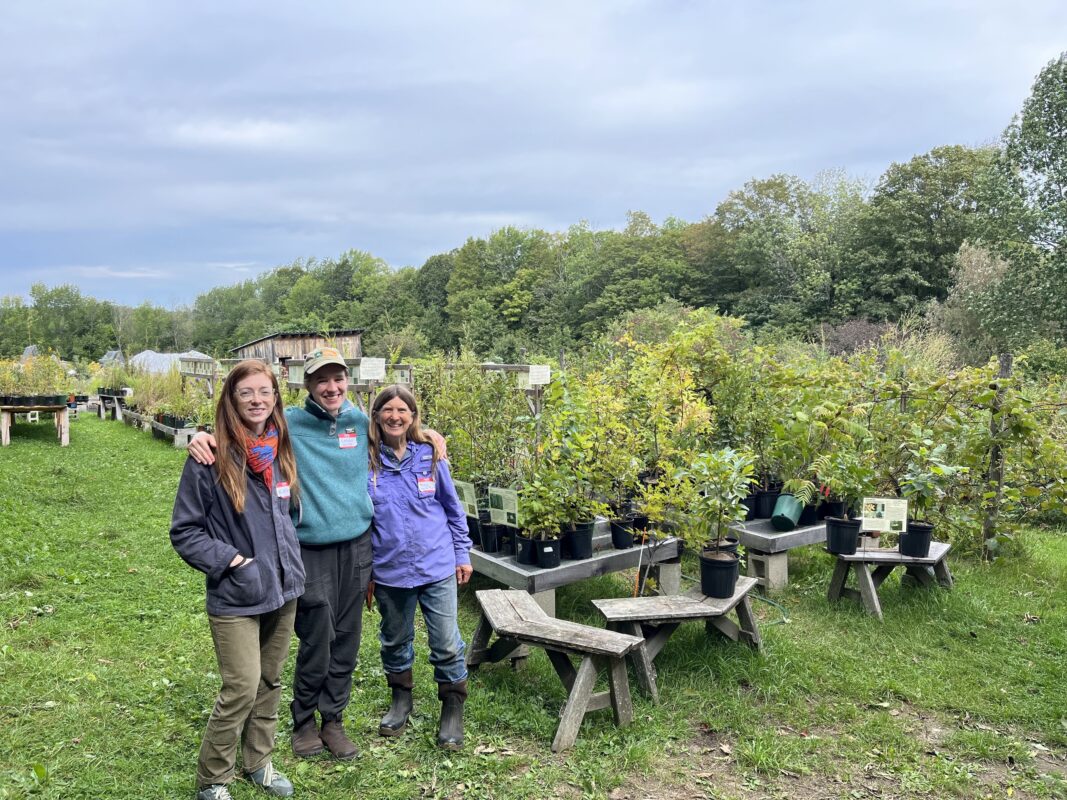What’s a community to do when pollinator habitat is in decline? Get together and act!
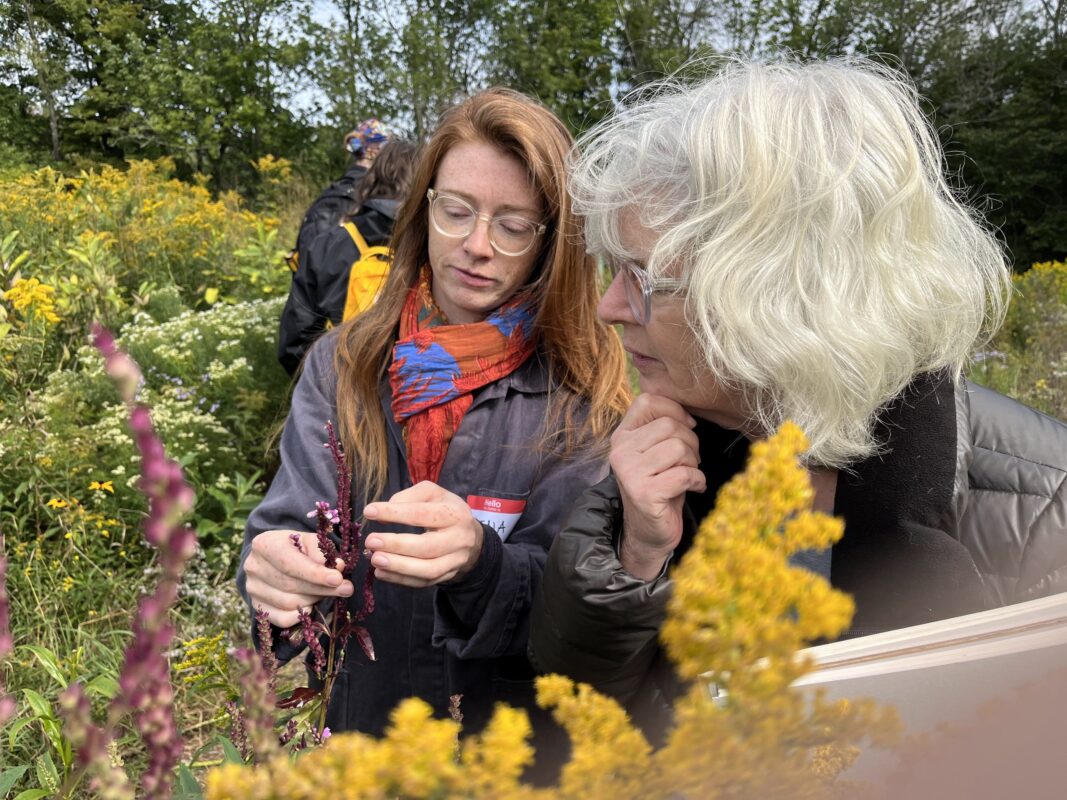
This September, a group of 12 gardeners gathered at Wing and a Prayer Nursery in Cummington to design their own pollinator havens. Guided by nursery owner Amy Pulley and landscape designer Elena Zachary, the group toured the lushly planted gardens of the nursery before sitting down to craft plant lists and planting layouts.
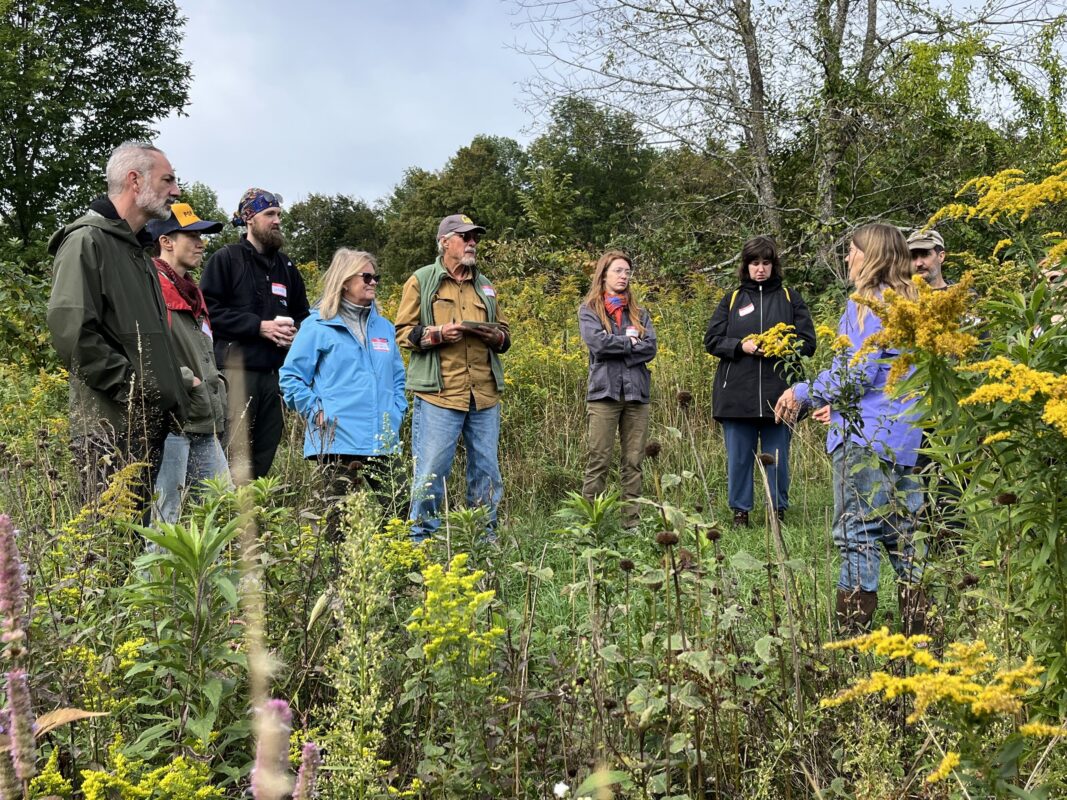

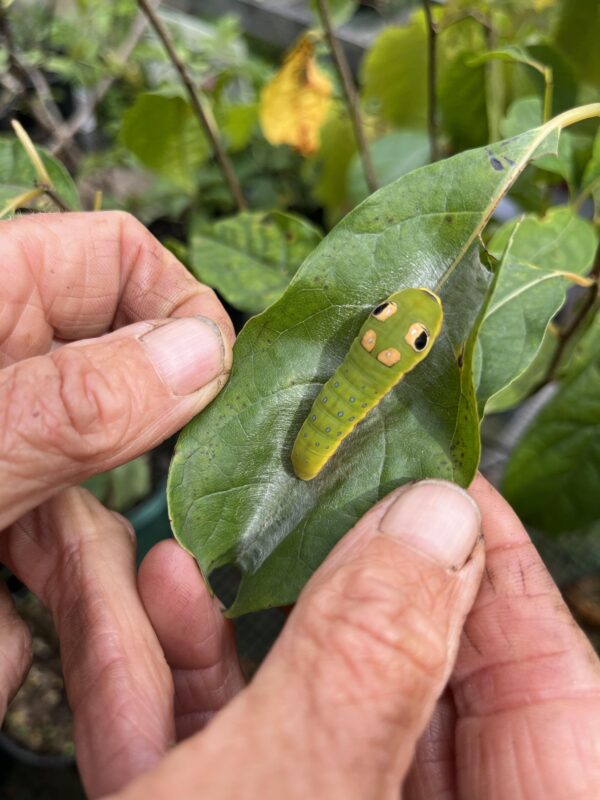
The group provided hope for a widespread investment in pollinator biomass sustainability and expansion.
Owen Zaret, participant
Participants’ garden plans ranged from a downtown Northampton courtyard to a sprawling Hilltown homestead. Across age and interests, group members found common ground in their determination to create and maintain spaces for insects threatened by habitat loss and climate change.
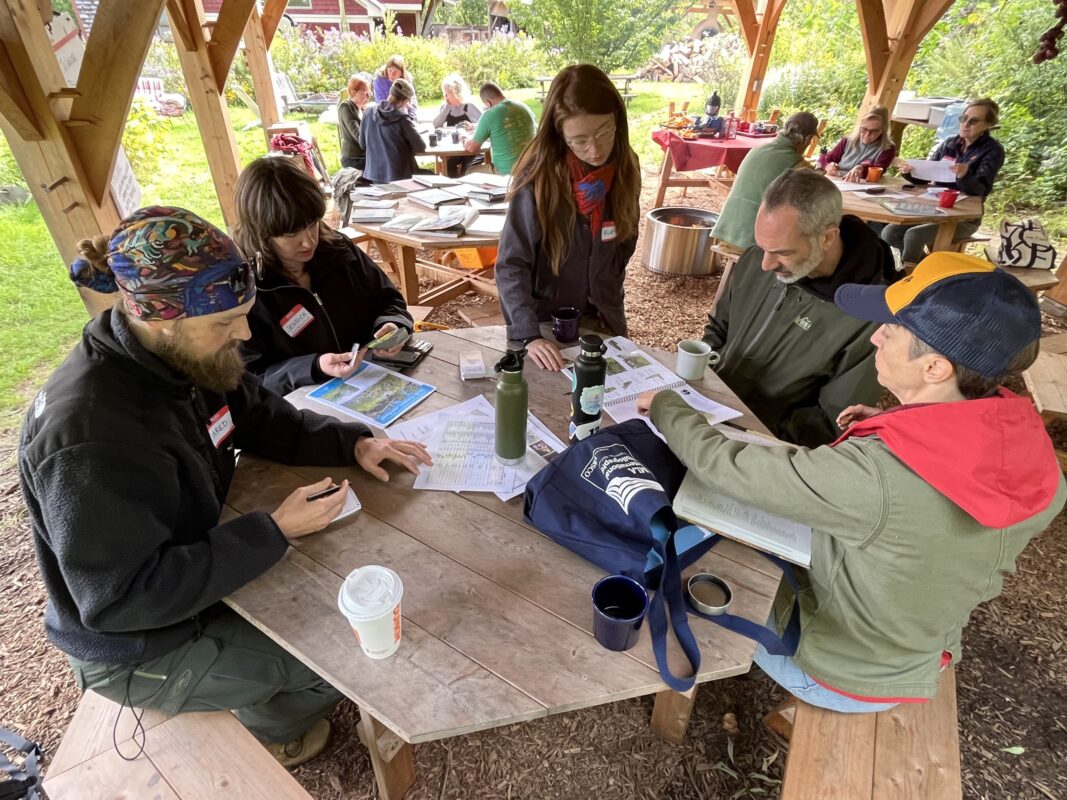
“Attending this with my child gave them the lived experience of the value of native plants and pollinators in our ecosystems,” said participant Owen Zaret of Easthampton, who attended the workshop with his teen child Alex. “I think it imparted on a member of their generation the importance of this work and practice. I’m excited to see my own pollinator spaces grow and foster important invertebrates and local ecology.”
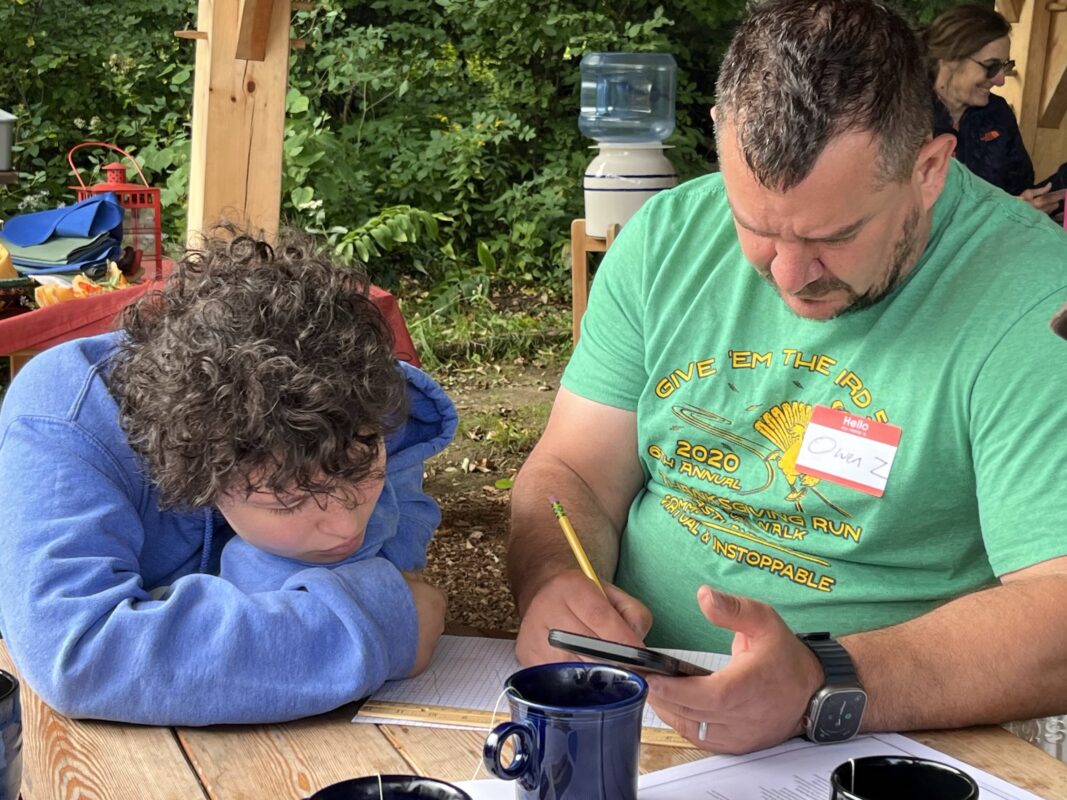
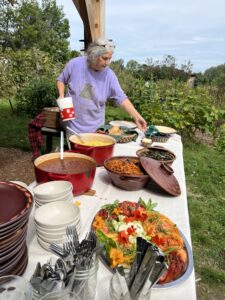
For workshop co-leader Amy, pollinator education is a lifelong project. For 40 years, Amy gardened organically at Honey Hill Homestead, where she and her wife Alice Cozzolino have built their home, the nursery, and Alice’s food business, Alice’s Kitchen.
I believe we can make a difference if enough of us take the time.
Amy Pulley, workshop co-leader
Amy’s concern about pollinator decline led her to found Wing and a Prayer Nursery nine years ago. She now offers over 200 species of organically grown, seed-propagated native plant species specifically chosen to serve the needs of pollinators.
“My goal is to educate pollinator advocates and to support and encourage every scale of habitat project, from yard gardens to neighborhood corridors to larger restoration projects,” says Amy. “I believe we can make a difference if enough of us take the time to educate ourselves and learn from each other, and act on what we know.”
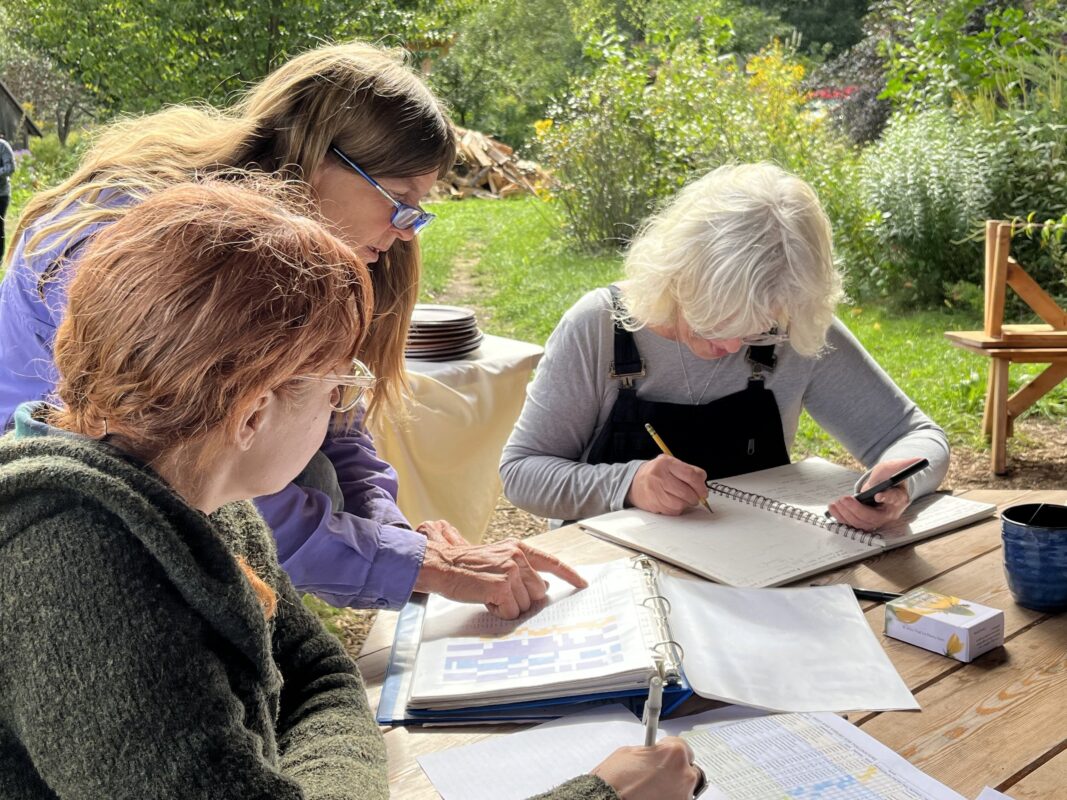
As a land trust, HLT helps conserve and care for pollinator habitat across the Hilltowns.
“Land conservation is about all beings who have a relationship with the land, including the insects who rely on abundant and diverse native plant life to thrive,” says HLT Executive Director Sally Loomis. “Workshops like these help us connect people who care about land stewardship with resources to make pollinator-friendly spaces a reality, in the Hilltowns and everywhere.”
Are you interested in creating or caring for your own pollinator habitat?
Check out the resource list compiled by workshop co-leader Elena Zachary.
Amy is happy to give plant suggestions, too. Stop by the nursery or give her a call!
And as always, stay tuned to our events page for more ways to connect with the land and each other.
